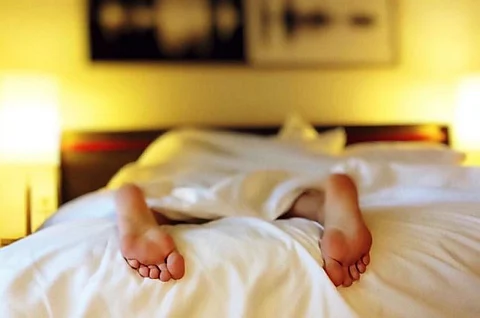

When you wake up after a good night’s rest, it makes you feel alert, fresh and well-rested. In contrast, lack of a good night’s sleep may leave you feeling grouchy, moody and irritable. Of course there are the peculiar individuals who get seven hours of sleep but still feel tired and others who seem to hardly sleep, but have so much energy. Getting a good amount of sleep is crucial to leading a healthy life. However with so many people having conflicting sleeping habits and patterns, what really makes for good sleep and what can you be doing to make sure that you are getting enough of your beauty sleep? As always science has the answers which TNM has sought out.
On average, an individual sleeps for a total of around 26 years in their entire lifetime, which amounts to over 200,000 hours of sleep. However, there are incredible discrepancies with the amount of sleep required from person to person. It is recommended that teens and young adults get between 6 and 7 hours of sleep, while older adults are advised to get at least 7 to 8 hours of sleep. In elderly individuals and newborn babies, more than 8 hours of sleep is recommended by experts.
Despite these guidelines, why are some individuals able to get better quality of sleep than others? Why do our individual sleep habits vary? As TNM found out, there are multiple factors which contribute to how much sleep is needed for each person.
“While age and environmental factors definitely contribute to the amount of sleep an individual may need, practically speaking what we need to account for is the individual’s sleep debt,” explains Dr Samith Shetty, a physician from Bengaluru’s Sparsh Hospital.
Sleep debt is a term used by experts to explain the compounded effects of not getting enough sleep.
“To put it simply, it is as though the body keeps track of every extra hour that you should be sleeping but instead are spending awake. These hours accumulate over a period of time and do take a toll on your health,” adds the doctor. Lack of adequate sleep can take a serious toll on one’s health.
What happens to the body when you don’t get enough sleep?
Chronic sleep deprivation may put people at risk of developing significant health risks including heart disease, diabetes, obesity, early mortality. A report was recently published in the Journal of Experimental Psychology based on a study done at the Michigan State University’s Sleep and Learning Lab which revealed that a chronic lack of sleep is more harmful than earlier thought.
“Our research showed that sleep deprivation doubles the odds of making errors and triples the chances of lapsed attention,” stated Kimberley M Fenn one of the researchers of the study to the media.
Another researcher noted that the latest findings proved the popular belief that only cognitive abilities were affected by sleep deprivation was wrong.
In contrast, getting adequate rest and sleep keeps people alert and active. It also aids in various metabolic processes. Research has also shown that sticking to an established routine for sleep aids in learning, comprehension and memory.
Breaking down the science behind sleep
There is not one mechanism which is at play to ensure that a person sleeps. Sleep occurs as a combination of biological factors and environmental ones. There exists a natural system in all of us called the circadian rhythm which is an internal clock of sorts that maintains the sleep-wake cycle.
A part of the brain called the hypothalamus interprets signals from the external environment (such as sunlight) and relays this to another part of the brain which ‘tells’ the body what hormones and chemicals to suppress or release depending on the time of day.
During the day time, the eyes perceiving light will be interpreted in this manner by the hypothalamus to relay to the body that it is time to be awake. Whereas at night time, lack of light in the environment contributes to the secretion of a hormone called melatonin, which allows you to sleep. Melatonin remains in the bloodstream for about 9 to 12 hours, following which melatonin levels begin to decrease. There is almost no melatonin traceable in the bloodstream during the daytime.
Infants and young children require more sleep than adolescents. Elderly individuals also require more sleep than the average adult.
There are certain steps you can take to ensure that you are getting adequate sleep.
“First, it is crucial to set a bedtime. This will help you get into the habit of ensuring that you go to sleep and wake up at a regular time daily. By doing so, it will help maintain your natural circadian rhythm without disturbing it too much. Get off electronic devices at least 30 minutes before getting to bed. Ensure that you are sleeping on a comfortable mattress that supports your back. Turn off lights, this will help ensure that melatonin is released appropriately. Some people might want certain sounds, scents or maybe a night light, which is ok as long as it is keeping them comfortable,” says the doctor.
He also advises that people avoid smoking or drinking prior to sleeping as it may have negative consequences on the brain.